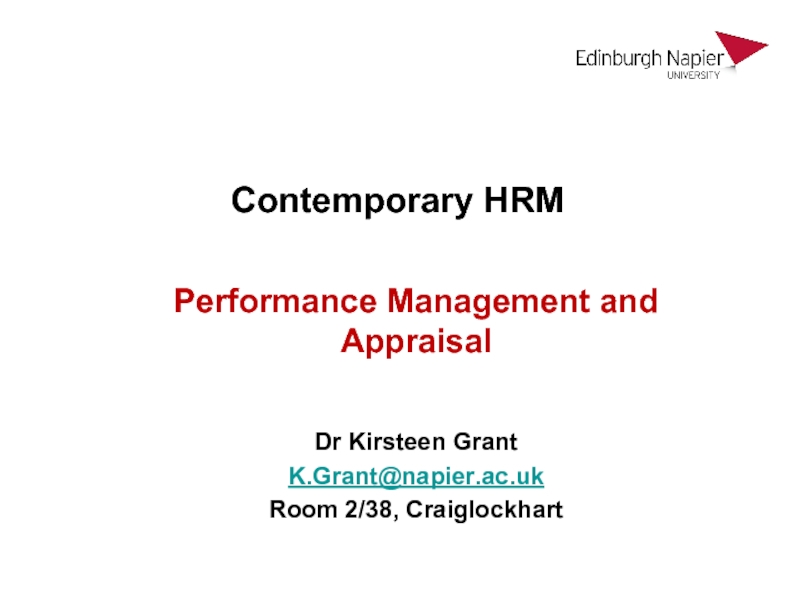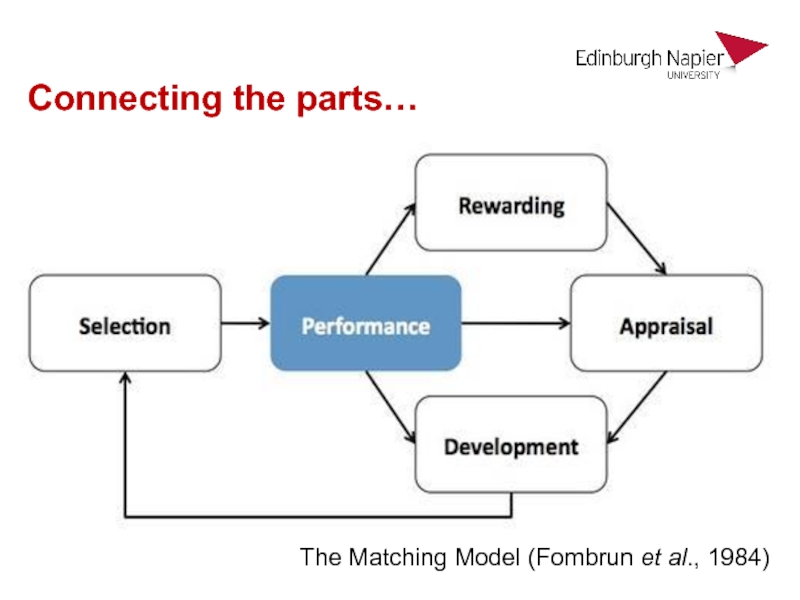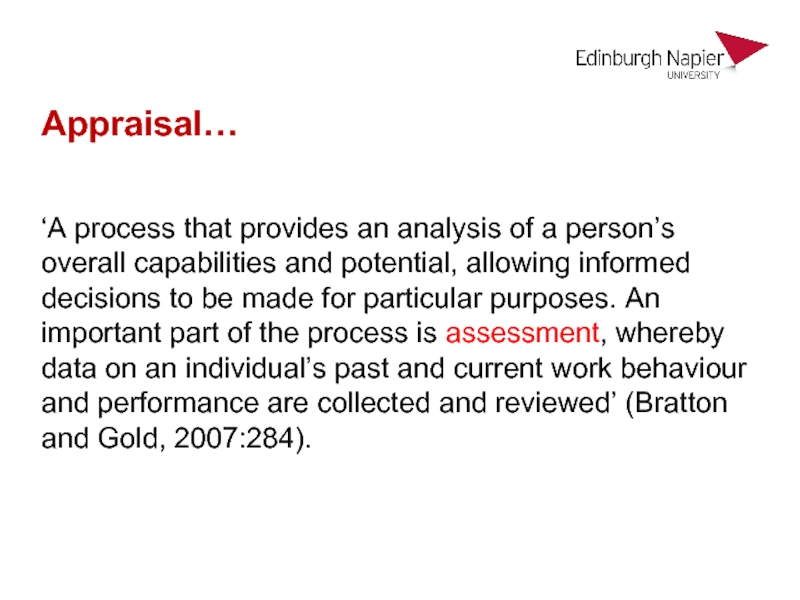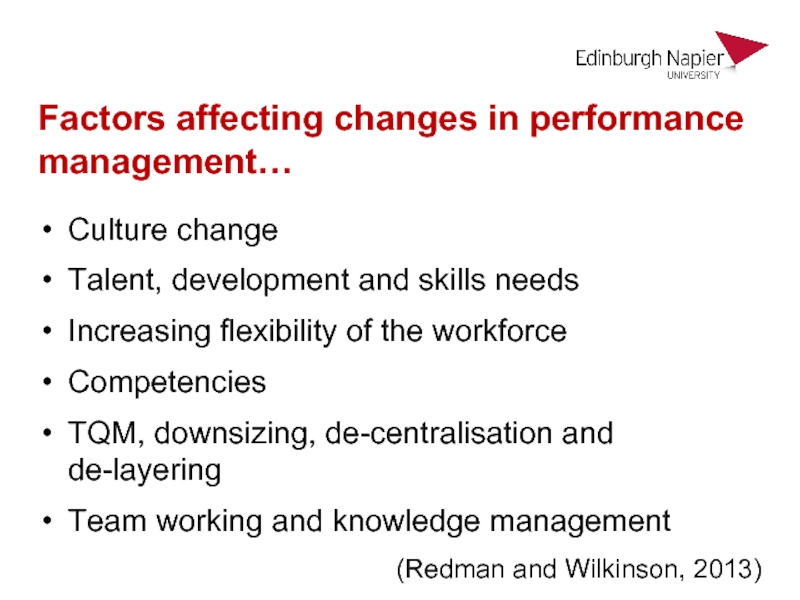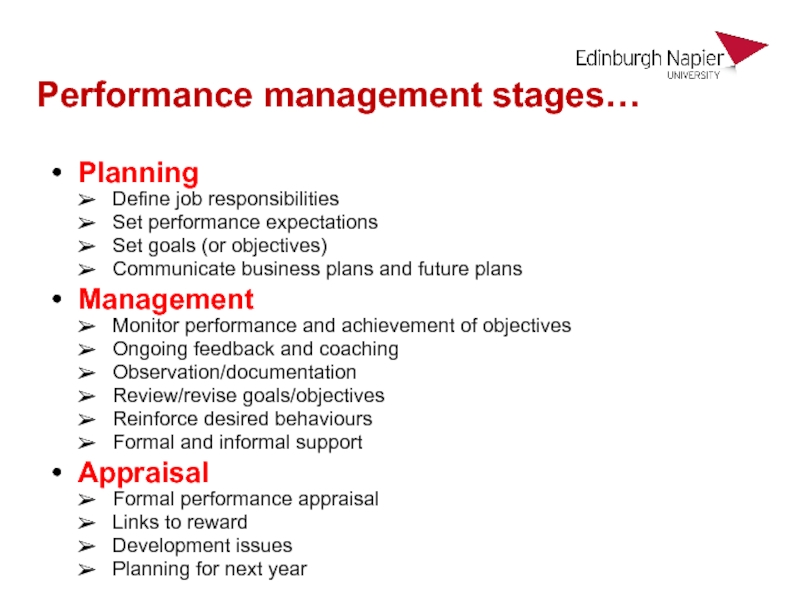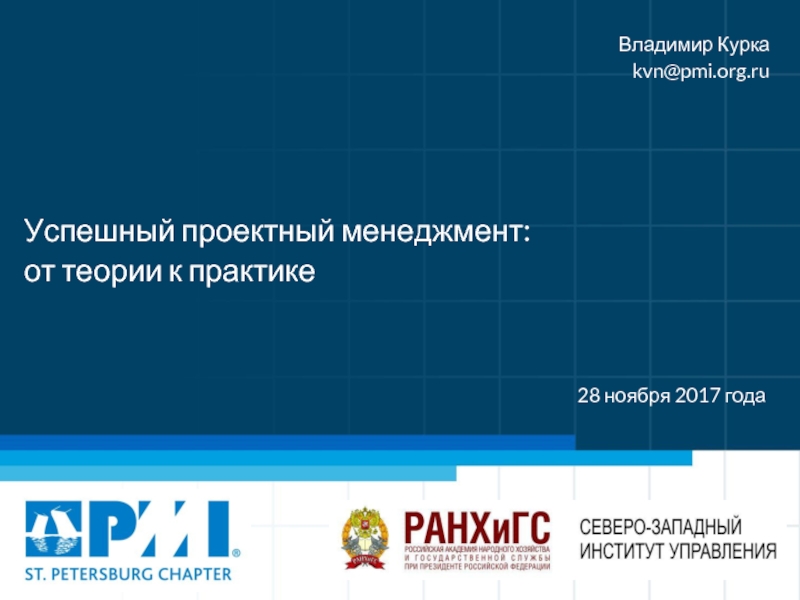- Главная
- Разное
- Дизайн
- Бизнес и предпринимательство
- Аналитика
- Образование
- Развлечения
- Красота и здоровье
- Финансы
- Государство
- Путешествия
- Спорт
- Недвижимость
- Армия
- Графика
- Культурология
- Еда и кулинария
- Лингвистика
- Английский язык
- Астрономия
- Алгебра
- Биология
- География
- Детские презентации
- Информатика
- История
- Литература
- Маркетинг
- Математика
- Медицина
- Менеджмент
- Музыка
- МХК
- Немецкий язык
- ОБЖ
- Обществознание
- Окружающий мир
- Педагогика
- Русский язык
- Технология
- Физика
- Философия
- Химия
- Шаблоны, картинки для презентаций
- Экология
- Экономика
- Юриспруденция
Contemporary HRM презентация
Содержание
- 1. Contemporary HRM
- 2. Session objectives… By the end of this
- 3. Connecting the parts… The Matching Model (Fombrun et al., 1984)
- 4. Performance management definitions… A systematic process for
- 5. Performance management purpose… PM can help organisations
- 6. Performance management cycle…
- 7. Appraisal… ‘A process that provides an analysis
- 8. A tool to ensure that managers can
- 9. Measures… Performance Behaviour Development Potential
- 10. ‘Performance management should be treated as part
- 11. Pause for thought… How might PM processes
- 12. Real life view… “Performance management ought to
- 13. Factors affecting changes in performance management… Culture
- 14. Changing nature of PM – roles of HR and the line…
- 15. Three stages in performance management cycle (Spencer
- 16. Performance management stages… Planning Define job responsibilities
- 17. Performance appraisal stages…
- 18. Benefits of appraisal to employers… Defining and
- 19. Benefits to employees… Opportunity to receive feedback
- 20. Viewed as a ‘chore’ Lack of preparation:
- 21. Some overall conclusions… Performance management and appraisal
Слайд 1Contemporary HRM
Performance Management and Appraisal
Dr Kirsteen Grant
K.Grant@napier.ac.uk
Room 2/38, Craiglockhart
Слайд 2Session objectives…
By the end of this session you will be able
to:
Examine the scope and nature of performance management (PM) and appraisal
Understand the key assumptions, complexities and debates surrounding the area
Examine the scope and nature of performance management (PM) and appraisal
Understand the key assumptions, complexities and debates surrounding the area
Слайд 4Performance management definitions…
A systematic process for improving organisational performance by developing
the performance of individuals and teams (Armstrong, 2006)
A cycle of integrated activities which ensures that a systematic link is established between the contribution of each employee and the overall performance of the organisation (Bach, 2013)
Establishing a framework in which people performance can be directed, monitored, motivated and refined (Clark, 2005)
A cycle of integrated activities which ensures that a systematic link is established between the contribution of each employee and the overall performance of the organisation (Bach, 2013)
Establishing a framework in which people performance can be directed, monitored, motivated and refined (Clark, 2005)
Слайд 5Performance management purpose…
PM can help organisations to:
Communicate a shared vision
Define expectations
of ‘what’ and ‘how’
Ensure awareness of what constitutes ‘high performance’
Enhance motivation and commitment by recognition and feedback
Enable people to monitor their own performance and encourage dialogue to improve performance
(Armstrong and Baron, 2012)
Ensure awareness of what constitutes ‘high performance’
Enhance motivation and commitment by recognition and feedback
Enable people to monitor their own performance and encourage dialogue to improve performance
(Armstrong and Baron, 2012)
Слайд 7Appraisal…
‘A process that provides an analysis of a person’s overall capabilities
and potential, allowing informed decisions to be made for particular purposes. An important part of the process is assessment, whereby data on an individual’s past and current work behaviour and performance are collected and reviewed’ (Bratton and Gold, 2007:284).
Слайд 8A tool to ensure that managers can manage effectively by ensuring
that the people and teams they manage:
Know and understand what is expected of them
Have the skills and ability to deliver on these expectations
Are supported by the organisation in developing the capacity to meet (and exceed?) these expectations
Are given feedback on their performance
Have the opportunity to discuss and contribute to individual and team aims and objectives
Know and understand what is expected of them
Have the skills and ability to deliver on these expectations
Are supported by the organisation in developing the capacity to meet (and exceed?) these expectations
Are given feedback on their performance
Have the opportunity to discuss and contribute to individual and team aims and objectives
Appraisal is…
Слайд 10‘Performance management should be treated as part of the normal process
of management…It pervades every aspect of running the business’ (Armstrong and Baron, 1998:28)
Establishing a culture in which individuals and groups take responsibility for the continuous improvement of business processes and of their own skills, behaviour and contributions (CIPD, 2016)
Establishing a culture in which individuals and groups take responsibility for the continuous improvement of business processes and of their own skills, behaviour and contributions (CIPD, 2016)
Performance management integration…
Слайд 11Pause for thought…
How might PM processes influence employee engagement?
What factors might
have the biggest impact on whether or not the PMS/appraisal improves employee performance?
Слайд 12Real life view…
“Performance management ought to be about aligning people’s efforts
to deliver what the company needs…making sure people are clear about how they deliver the objectives of their job.
It should also help people perform to their best by helping them understand what great performance looks like and how far they are from it…a process which encourages people to go and be successful”
(Tony Voller, IHG)
It should also help people perform to their best by helping them understand what great performance looks like and how far they are from it…a process which encourages people to go and be successful”
(Tony Voller, IHG)
Слайд 13Factors affecting changes in performance management…
Culture change
Talent, development and skills needs
Increasing
flexibility of the workforce
Competencies
TQM, downsizing, de-centralisation and de-layering
Team working and knowledge management
(Redman and Wilkinson, 2013)
Competencies
TQM, downsizing, de-centralisation and de-layering
Team working and knowledge management
(Redman and Wilkinson, 2013)
Слайд 15Three stages in performance management cycle (Spencer and Spencer, 2005)…
At the
start is the performance planning stage
Throughout the cycle is the performance management stage
At the end is the performance review/appraisal stage
So, what should a manager do at each stage to ensure effective performance of employees?
Throughout the cycle is the performance management stage
At the end is the performance review/appraisal stage
So, what should a manager do at each stage to ensure effective performance of employees?
Слайд 16Performance management stages…
Planning
Define job responsibilities
Set performance expectations
Set goals (or objectives)
Communicate business
plans and future plans
Management
Monitor performance and achievement of objectives
Ongoing feedback and coaching
Observation/documentation
Review/revise goals/objectives
Reinforce desired behaviours
Formal and informal support
Appraisal
Formal performance appraisal
Links to reward
Development issues
Planning for next year
Management
Monitor performance and achievement of objectives
Ongoing feedback and coaching
Observation/documentation
Review/revise goals/objectives
Reinforce desired behaviours
Formal and informal support
Appraisal
Formal performance appraisal
Links to reward
Development issues
Planning for next year
Слайд 18Benefits of appraisal to employers…
Defining and reviewing performance
Clarifying expectations, setting goals
and targets
Reviewing potential/career counselling, succession planning
Identifying learning and development needs
Allocating rewards
Maintaining a positive psychological contract
Motivating employees
Improving communication
Achieving cultural change
(Adapted from Bratton and Gold, 2007:284)
Reviewing potential/career counselling, succession planning
Identifying learning and development needs
Allocating rewards
Maintaining a positive psychological contract
Motivating employees
Improving communication
Achieving cultural change
(Adapted from Bratton and Gold, 2007:284)
Слайд 19Benefits to employees…
Opportunity to receive feedback on performance – especially ‘Generation
Y’!
Opportunity to communicate views about the job
Opportunity to discuss career options/ aspirations
Recognition of tasks carried out well and objectives achieved – rewards?
Basis for identifying new work objectives, and learning and development needs
Opportunity to communicate views about the job
Opportunity to discuss career options/ aspirations
Recognition of tasks carried out well and objectives achieved – rewards?
Basis for identifying new work objectives, and learning and development needs
Слайд 20Viewed as a ‘chore’
Lack of preparation: one or both parties
Too little
time allocated
Unbalanced feedback (judgemental rather than developmental)
Lack of detail and examples – too focused on recent events
Too little employee input
Surprise information
Process/documentation is too complex
Lack of training
No commitment to appraisal, and so no meaningful outcomes from it
Unbalanced feedback (judgemental rather than developmental)
Lack of detail and examples – too focused on recent events
Too little employee input
Surprise information
Process/documentation is too complex
Lack of training
No commitment to appraisal, and so no meaningful outcomes from it
Problems with appraisal…
Слайд 21Some overall conclusions…
Performance management and appraisal are not the same, but
they are inter-related activities
Performance management is also inextricably linked with other aspects of HRM (covered within the module)
Performance appraisal is now more popular than ever in organisations
Appraisal has received a number of criticisms in relation to its focus on control and ineffective implementation
A key task facing organisations is the upgrading and renewal of performance appraisal to meet the current business environment
Performance management is also inextricably linked with other aspects of HRM (covered within the module)
Performance appraisal is now more popular than ever in organisations
Appraisal has received a number of criticisms in relation to its focus on control and ineffective implementation
A key task facing organisations is the upgrading and renewal of performance appraisal to meet the current business environment
